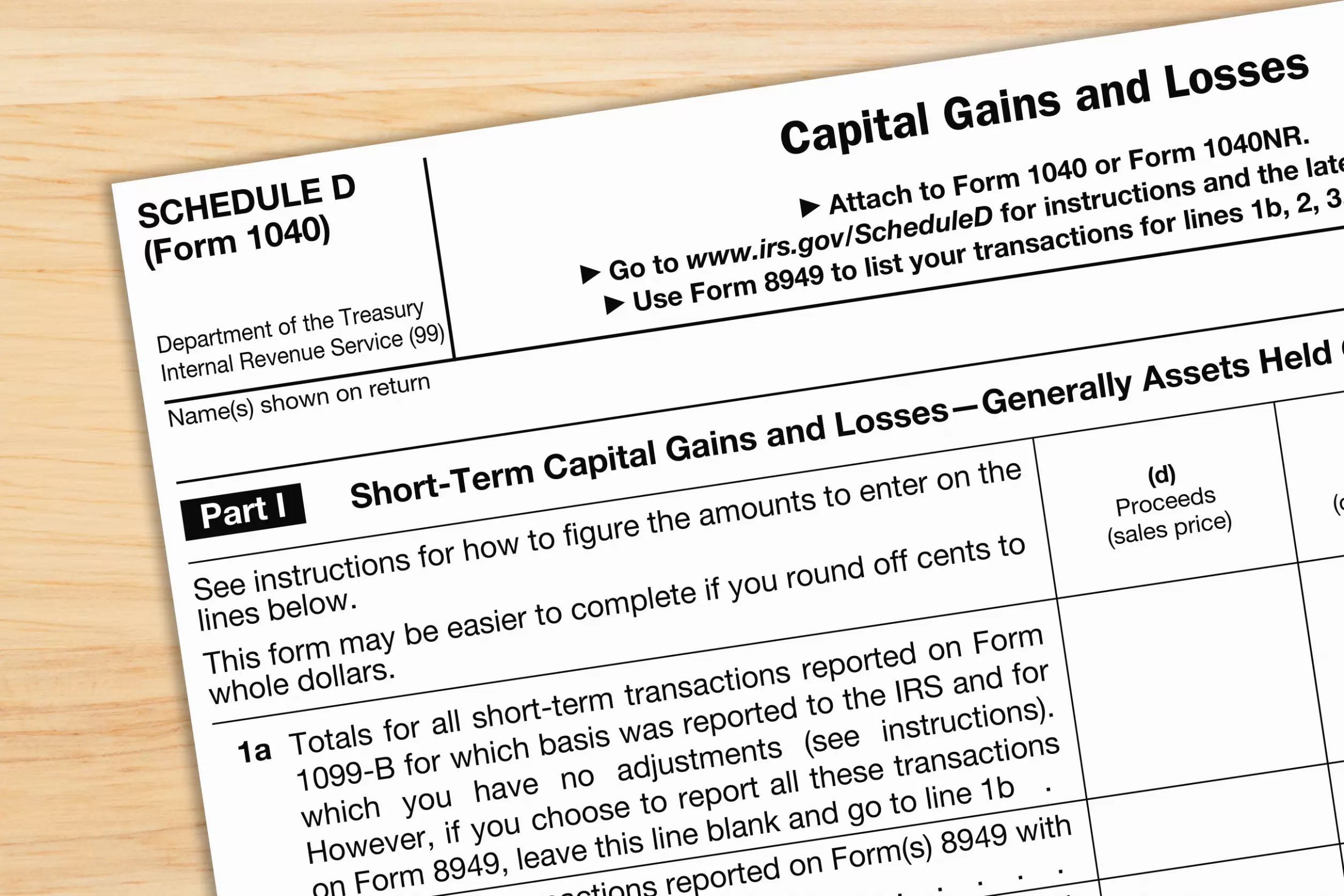

Capital gains tax can be a complex area for many who have never dealt with it before.
In Spain, this tax can be particularly nuanced depending on an individual's residency status. Residents, EU residents, and non-EU residents all have different rules to navigate when it comes to reporting and paying capital gains tax.
Essentially, it is a tax in Spain that must be paid on the profit made from the sale of assets such as property, shares, and investments. But who has to pay it? And how much? When? And which capital asset categories specifically are affected?
These are important questions to answer, especially for those thinking about buying property in Spain and indeed selling Spanish property, or otherwise dealing in Spanish property.
For UK Residents and other foreign investors, understanding the intricacies of Spanish capital gains tax is crucial. Seeking Legal Advice from qualified Tax Advisors can help navigate the complex Tax Implications of property transactions in Spain.
Want to hear what other clients
are saying about us?
1. Who has to pay capital gains tax in Spain?
Capital gains tax is a type of tax levied on the profit derived from the sale of an asset. It is a tax on a capital gain - as opposed to a gain of income, which is covered by income tax. It can also be distinguished from Wealth tax, which is a tax on the overall wealth of an individual in Spain.
In Spain, the capital gains tax is payable by all taxpayers who dispose of or transfer an asset for a profit. This means that, whether you are a resident or non-resident, an individual, or a corporation, you will have to pay capital gains tax if you sell an asset for a profit.
The tax is payable on the difference between the purchase price and the selling price of the asset. The types of assets that are affected by capital gains tax are numerous, including stocks, real estate, and works of art, among others.
However, there are some exceptions to this rule, such as the sale of your primary residence, which can be exempt from capital gains tax if certain conditions are met.
It's important to note that Foreign Investment in Spanish property may have different Tax Implications depending on your residency status. UK Residents should be aware of potential Double Taxation issues and consult with both the Spanish Tax Authorities and HMRC to ensure compliance.
2. Relevance of the location of an asset for capital gains tax in Spain
When it comes to whether or not you have to pay capital gains tax in Spain, the location of the asset can have a significant impact on how much you owe.
Regardless of whether the asset is located in Spain, you may still be required to pay Spanish capital gains tax if you are a Spanish resident or if the asset is related to a Spanish source of income.
This could include everything from property or stocks to personal belongings like artwork, antiques, or jewellery.
However, there are also many exceptions and special regulations that may apply depending on your specific situation.
3. Capital Gains Tax for Spanish tax residents
As far as the Spanish tax authorities are concerned, a person is considered to have their habitual residence in Spain, and therefore be tax resident in Spain, in any of the situations described below:
- The person is actively resident in Spain for more than 183 days during the calendar year. In calculating the time spent in Spain, occasional absences are included, unless the person can prove their tax residency in another country.
- The individual has their main core or base of economic activities or interests, either directly or indirectly, located in Spain.
- The individual's spouse or children are habitual residents in Spain
In the case of countries or territories classified as tax havens, the tax authorities may require proof of staying in such a tax haven for 183 days in the calendar year.
Temporary stays in Spain resulting from cultural or humanitarian collaboration agreements, provided on a voluntary basis with Spanish public administrations, will not be counted to determine the stay period.
Any gain derived from the sale of an asset should be declared by the individual's in their annual tax return (Impuesto sobre la Renta de las Personas Físicas). However, the tax on any gain is payable at the time of the sale of the asset.
Likewise, if the individual made a loss on the sale of an asset, this should be declared in their annual tax return, by June of the following tax year.
When filing Tax Returns in Spain, it's crucial to accurately report all capital gains. This may require consultation with Tax Advisors who are familiar with both Spanish and international tax laws, especially for those with Foreign Investment interests.
It is possible to compensate losses against gains, but only to a certain extent. For example, capital losses can be used to balance-out up to 25% of any gain in a different category, such as a gain from a sale of real estate.
4. Capital gains tax rates in Spain
The capital gains tax rate in Spain may be summarised as follows:
- Up to 6.000 Euros: 19%
- From 6.000 to 50.000 Euros: 21%
- From 50.000 Euros to 200,000 Euros: 23%
- Above 200,000 Euros: 26%
Remember, the tax applies only to any gain, not the total value of the sale.

5. Capital Asset Categories that attract Capital gains tax in Spain
The most common examples of operations that attract capital gains tax include:
- Capital gains from the sale of shares and income derived from dividends.
- Capital gains from the sale of ETFs.
- Capital gains from the sale of options, futures, and warrants.
- Capital gains from the sale of mutual funds.
- Capital gains from the sale of real estate properties.
6. Capital Gains from the Sale of Shares and income derived from dividends
As a Spanish tax resident, you will have a tax liability on capital gains derived from the sale or disposal of shares you hold in businesses located in Spain or internationally, as well as on any income derived from dividends issued by same or any other business in which you have an interest.
Note that, in accordance with Article 38 of Law 35/2006, and when the conditions set-out in the legislation are adhered to, any gains from the sale of shares or participations will be exempt from tax if the amount received is reinvested in the acquisition of these entities.

7. Capital Gains from income related to property sales in Spain and abroad
Many Spanish tax residents, regardless of their country of origin, derive a taxable income from the sale of property - whether in Spain or in another country.
It is a fundamental aspect of Spanish tax law, that Spanish tax residents must pay tax on their global income as well as on any capital gains.
Therefore, a Spanish tax resident will have a tax liability arising from the disposal of any properties - either in Spain or abroad - at the rate mentioned in the paragraph on Capital gains rates in Spain, above.
The Capital Gains Calculation for property sales can be complex, involving various factors. Deductible Expenses such as legal fees, property taxes, and renovation costs can significantly impact the final tax liability. Proper documentation and expert guidance are essential for accurate Tax Declaration.
Partial tax exemption: A capital gain derived from the sale of real estate located in Spanish territory that acquired from May 12, 2012, until December 31, 2012, is exempted by 50 percent.
This partial tax exemption does not apply when the property has been acquired or transferred to their spouse, any person related to the taxpayer by direct or collateral lineage, by consanguinity or affinity, up to and including the second degree, or to an entity with which the taxpayer or any of the aforementioned persons has any of the circumstances established in Article 42 of the Commercial Code, regardless of residence and the obligation to prepare consolidated annual accounts.
There are also exceptions that exist for the sale or disposal of the taxpayer's habitual residence, applied to certain categories of persons, frequently referred to as the main home exemption.
A property in Spain may be considered the family home, for fiscal purposes, once the taxpayer has lived there for 3 years. In other countries, such as Ireland, it is less.
Useful Tip!
- It may therefore be an option to return to the country where the property is located, establish residency there, sell the property and be exempt from the tax under local tax rules, then return to Spain.
8. The Main Home Exemption to Capital Gains tax
If you are a Spanish tax resident, or indeed, a tax resident of any European Union state, under Article 38 of Law 35/2006, any capital gain obtained from the sale of the main residence will be exempt as long as the amount is reinvested in the acquisition of a new main residence.
Note, if the reinvested amount is less than the amount received from the sale, the proportional part of the gain corresponding to the reinvested part will be exempt from capital gains tax in Spain.
It is worth highlighting that those who are tax resident in the UK are no longer considered to be taxpayers in an EU State and so no longer benefit from this exemption.
The Main Home Exemption can provide significant tax savings, but it's subject to specific conditions. UK Residents and other non-EU citizens should seek Legal Advice to understand how this exemption applies to their situation post-Brexit.
9. Exemptions from Capital gains tax in Spain for those over the age of 65
For those over the age of 65, you can avoid capital gains tax when selling your habitual residence without any conditions. Reinvestment in another property is not necessary to enjoy the tax benefit. If the property was acquired by a married couple under a community property regime (gananciales), both spouses must have reached 65 years old to benefit from the exemption.
In order to qualify for this tax reduction, it is necessary that you have lived in the property for at least 3 years, as referred to in Article 31.4 b) of the TRLIRPF law, and confirmed by the Supreme Court.
The sale of a holiday home, an investment fund portfolio, or the transfer of other financial assets - such as the good-will of a business or taxi license is also free of capital gains tax from the age of 65, though with one condition: you must purchase a life annuity, up to a maximum amount of €240,000.
Note that, life annuities can be a safe option with a reduced level of taxation. The income from the life annuity is taxed as capital gains and also benefits from significant reductions, so they are almost exempt for older policyholders.
Only 24% of the annuity income will be taxed in the personal income tax if the policyholder is between 60 and 65 years old; 20% if between 66 and 69 years old, and 8% if 70 years old or older.
These percentages correspond to the age of the policy holder at the time of the product's establishment and remain constant throughout its validity, as explained by the Tax Agency. Thus, the maximum tax benefit will be for those who contract the life annuity at or after the age of 70.
It's worth noting that while capital gains tax may be reduced or eliminated in certain circumstances, other taxes like Wealth Tax may still apply. A comprehensive understanding of the Spanish tax system is crucial for effective financial planning.

10. Capital gains tax in Spain for non-residents
Here it is convenient to separate fixed and moveable assets, since the former includes real estate assets, which is an important asset class that affect many non-residents:
11. Capital gains tax in Spain on non-fixed Assets for non-residents
The Spanish tax authorities consider income from dividends and shares as having occurred in Spain, in the following situations:
• Dividends and other income derived from the participation in equity of entities (businesses) resident in Spain.
• Interest and income obtained from the transfer to third parties of the individual's assets to individuals or entities resident in Spanish territory
• Royalties paid by individuals or entities resident in Spanish territory, or by permanent establishments located in the same, or used in Spanish territory.
A person who is not resident in Spain, but derives an income from activities described above, will nonetheless have a Capital Gains Tax liability in Spain.
Note that, the Spanish tax office considers business income, in the form of dividends) to be taxable in Spain when the business income relates to a company that meets any of the following criteria:
• That it has been established in accordance with Spanish law.
• That it has its registered office in Spanish territory.
• That it has its place of effective management in Spanish territory. It will be understood that an entity has its place of effective management in Spanish territory when the direction and control of all of its activities are located there.
Accordingly, this should be borne in mind by anyone deriving business income in the form of dividends from a company that fulfils any of the above criteria.
The rate of capital gains tax payable is as stated in the paragraph relating to Capital gains rates in Spain above.
12. Capital gains tax on property in Spain by non-residents
As stated previously, only those non-residents who currently pay taxes in another EU state may benefit from any exemptions from the tax on a capital gain resulting from the sale of a property in Spain.
If you are tax resident in Spain, you will normally pay 19% on the initial €6,000 of a capital gain, 21% up to €50,000, 23% up to €200,000 and 26% thereafter.
On the other hand those who are not tax resident in Spain, for example, pay capital gains tax at a flat rate of 19% on any capital gain resulting from the disposal of a property in Spain.
However, if you are a non-EU resident, such as a UK tax resident, the flat rate increases to 24% of any capital gain, following Brexit.
Bear in mind that, according to the rules stipulated by the tax authorities in Spain, you can deduct any expenses relating to the disposal of the asset, and so this would include legal fees, land registry fees, real estate agency fees, property transfer tax and other costs incurred.
For UK Residents and other non-EU citizens, the higher flat rate of 24% on capital gains underscores the importance of careful tax planning. Consulting with Tax Advisors who specialize in cross-border taxation can help minimize tax liabilities and ensure compliance with both Spanish Tax Authorities and HMRC.

13. Capital Gains Tax retention on property sales by non-resident taxpayers
By Article 25.2 Ley IRNR and Article 14 of the IRNR Regulation any person who acquires the property, whether a Spanish resident or not, is obliged to withhold and pay to the Spanish tax authorities 3% of the agreed consideration.
This withholding has the character of an advance payment of the tax corresponding to the gain derived from the transfer for the seller.
The acquirer shall pay the withholding tax by using Form 211 within one month from the date of transfer of the Spanish property, and shall deliver a copy of Form 211 to the non-resident seller so that the latter may deduct the withholding tax from the tax payable on the gain declaration.
If the withholding tax exceeds the tax payable, the excess may be refunded.
Here are some detailed scenarios that highlight how different capital gains are treated under Spanish tax laws:
Typical Scenarios
- Equity Compensation: Employees receiving shares as part of their compensation package may benefit from tax exemptions, especially under the Start-up Law (Law 28/2022), which offers favorable treatment for start-up employees. For instance, shares awarded up to EUR 50,000 annually can be exempt from taxation, with any non-exempt income deferred until specific events occur, such as the sale of shares or listing on a stock exchange.
- Carried Interest: Also provided for under Law 28/2022. this income, derived from the successful management of private equity funds or venture capital funds - where such funds are linked to entrepreneurial activities, is considered employment income. Taxation is applied to 50% of the carried interest income, provided that the economic rights are maintained for at least five years and are contingent on investor profits.
- Business Income: Income from business activities, including leases, manufacturing, and trade, is calculated in accordance with CIT laws. Leases are considered a business activity if a full-time employee manages them. Net business income is included in the general income and taxed at progressive rates.
- Capital Gains: Any gain from asset transfers, such as property sales, is subject to capital gains tax. The gains are calculated by deducting the acquisition value from the transfer value and are taxed at progressive rates between 19% and 28%. Special regimes apply to assets acquired before 31 December 1994, allowing for reduction coefficients on gains up to 19 January 2006. Exemptions under Articles 33, 38 LIRPF and 41/41 bis del RIRPF for reinvestment in a new principle residence or for over-65's.
- Capital Gains for Non-Residents: Non-residents without a permanent establishment in Spain are taxed at a rate of 19% (EU/EEA Citizens) or 24% (Non-EU Citizens) on gains from asset transfers: Article 25 IRNR 5/2004. Additional exemptions are available for individuals over 65 who reinvest the proceeds into an assured life annuity within six months. (Ley 35/2006 IRPF)
14. What is the Plusvalia tax on Spanish property?
In Spain, when you sell a property, you are subject to a municipal capital gains tax. This is despite the fact that you are liable to pay capital gains tax at the State level! The Plusvalia tax traditionally has caused confusion among non-residents, not to mention any foreigners who are Spanish resident
Long considered a highly unfair tax, especially in the manner of its application, given that it taxed the supposed increase in the value of urban land, even when there was no such increase, the form of calculating the tax was eventually struck down by the Spanish constitutional Court, in October 2021.
As a result of the Court ruling, anyone selling, gifting or inheriting a Spanish property, where there has been no increase in the value of the land will not have to pay the municipal capital gains tax.
It's important to note that the acquisition value must be subtracted from the transfer value to determine whether or not there has been an increase.
Additionally, capital gains generated in less than one year may be subject to taxation, as the legislator deems such transers to have a more speculative nature.
15. Who pays the Plusvalia tax, and how much is it?
The Plusvalia, being a municipal tax, is levied by the local townhalls and therefore varies across Spain.
The effect of the aformentioned decision of the Spanish Constitutional Court was the creation of a new law which governs the amount and manner of the application of the tax.
There are two distinct methods of calculating this municipal tax, and the property seller may choose whichever is economically most advantageous. These are known as the 'Objective' method and the 'Real' method.
The 1st method uses the difference in the 'catastral value' of the property (a notional, objective value assigned to land and property) while the second uses the difference in the purchase and sale value of the property. To the results of these calculations are applied the coefficients, set by the townhalls.
The local townhalls are not required to apply any specific coefficient, though they are limited by a maximum established by the new law, based on the number of years the property was held be the owner, which is currently the subject of a legal application to have it annulled, by members of the opposition political parties.
It is worth noting that this tax is not only paid when a person sells a property in Spain, but also when the property passes to their beneficiaries, mortis causa. Thus, capital gains tax will potentially arise in addition to inheritance tax in Spain.
For a broader treatment of government taxes related to property ownership in Spain, see property tax in Spain.
Want to hear what other clients
are saying about us?
16. Frequently Asked Questions
What are the Capital Gains Tax rates in Spain?
-
Residents
- Up to 6,000 Euros: 19%
- 6,000 - 50,000 Euros: 21%
- 50,000 - 200,000 Euros: 23%
- 200,000+ Euros: 26%
-
Non-residents (EU)
- 19%
-
Non-Residents (Non-EU)
- 24%
Is there a 26% capital gains tax in Spain?
Yes, in Spain, capital gains are taxed at a rate of 26% on the amount exceeding €200,000. The tax rates are as follows:
- 19% on the first €6,000
- 21% on the amount from €6,000.01 to €50,000
- 23% on the amount from €50,000.01 to €200,000
- 26% on the amount over €200,000.01
What is the capital gains tax in Spain on sale of UK property?
If you are a resident in Spain, you are liable to pay Spanish Capital Gains Tax on any gains from the sale of your UK property. The gain is the difference between the sale price and the purchase price, as follows
- 19% on the first €6,000
- 21% on the amount from €6,000.01 to €50,000
- 23% on the amount from €50,000.01 to €200,000
- 26% on the amount over €200,000.01
Non-residents are not liable for Spanish Capital Gains Tax on property sales outside of Spain.
How to avoid paying capital gains tax in Spain?
You can avoid paying Capital Gains Tax in Spain under certain conditions:
- Reinvestment in a New Primary Residence: Reinvest the proceeds from the sale into a new primary residence within two years.
- Senior Citizen Exemption: If over 65 and the property has been your primary residence in Spain for at least three years, you may be exempt.
- Selling within Five Years of Acquisition: Benefit from reductions if you sell within five years of acquiring the property.
- Non-Resident EU/EEA Exemption: Non-residents from EU/EEA countries can qualify for a 19% tax rate.
- Offsetting Capital Losses: Use capital losses from the same fiscal year to reduce taxable gains.
How can UK Residents manage their tax obligations for Spanish property?
UK Residents owning property in Spain must navigate both Spanish and UK tax systems. This involves:
- Filing accurate Tax Returns in both countries
- Understanding Double Taxation agreements
- Calculating Capital Gains correctly, considering Deductible Expenses
- Exploring potential exemptions like the Main Home Exemption
- Seeking professional Legal Advice and guidance from Tax Advisors familiar with both jurisdictions
Proper planning and expert assistance can help optimize tax positions and ensure compliance with both Spanish Tax Authorities and HMRC.








